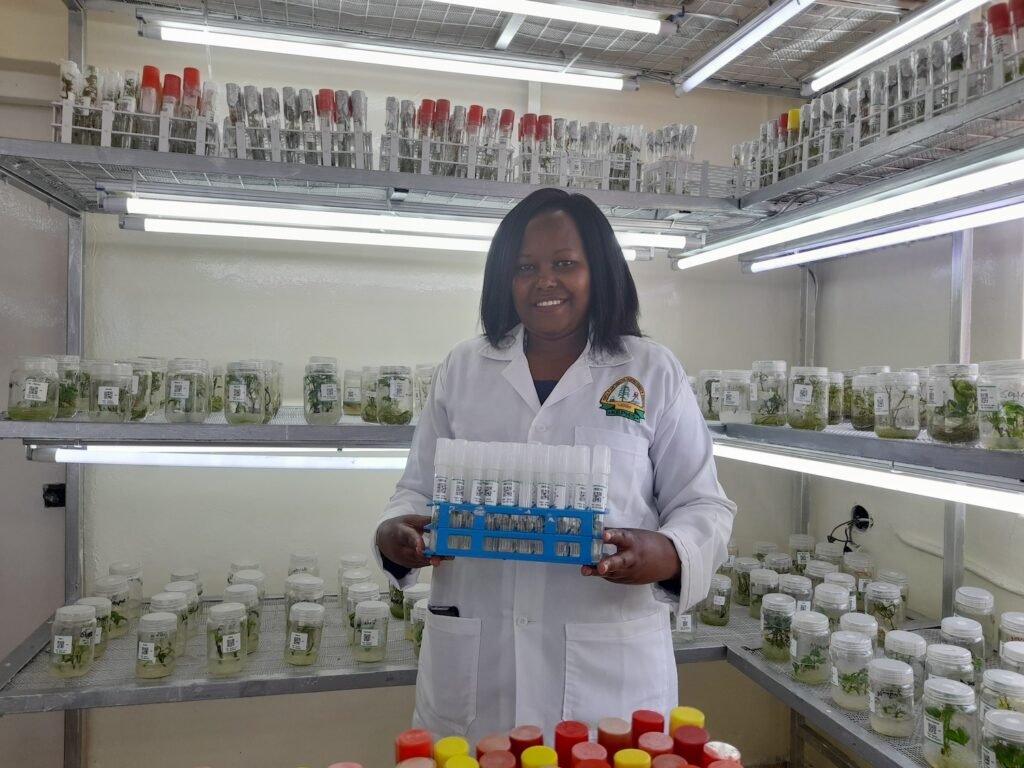But timely access to clean and quality sweet potato vines or seeds by farmers has remained elusive.
Many farmers often recycle sweet potato vines from one season to the next, causing a build-up of diseases and viruses, which in turn reduces the root yields. Florence Munguti, the Deputy Director of Kenya Plant Health Inspectorate Service (KEPHIS) Plant Quarantine & Biosecurity Station in Muguga, notes that the growth in sweet potato production and processing has also increased the need for clean, or disease-free planting material in sub-Saharan Africa. KEPHIS, in collaboration with International Potato center (CIP), has been multiplying clean planting material for the highly nutritious orange-fleshed sweet potato at its plant clinic at Muguga for distribution to farmers.
“Orange-fleshed sweet potato offers this part of the world a timely and resounding answer to malnutrition and that explains why we have embarked on provision of clean materials for planting. Using quality seed ensures higher yields of root for consumption and marketing,” says Munguti. Sweet potatoes are attacked by over 20 viruses.
The main viruses worldwide are sweet potato feathery mottle virus (SPFMV) and sweet potato chlorotic stunt virus (SPCSV).

